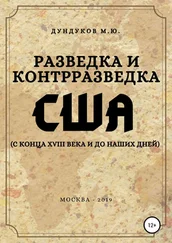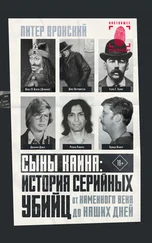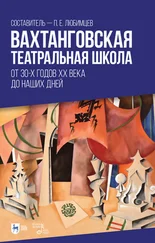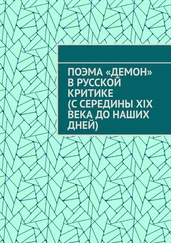Treffert, D. A. The savant syndrome: an extraordinary condition. A synopsis: past, present, future // Philosophical Transactions of the Royal Society 364 (2009): 1351–1357.
Warrington, E., and E. M. Taylor Two categorical stages of object recognition // Perception 7 (1978): 695–705.
Глава 29. Когнитивное бессознательное
и творчество
Baars, B. J. In the theater of consciousness: Global workspace theory, a rigorous scientific theory of consciousness // Journal of Consciousness Studies 4 (4) 1997: 292–309.
Blackmore, S. Consciousness: An Introduction. New York: Oxford University Press, 2004.
Blackmore, S. Mind over Matter? Many philosophers and scientists have argued that free will is an illusion. Unlike all of them, Benjamin Libet has found a way to test it . Commentary // Guardian Unlimited, April 28, 2007.
Boly, M., Balteau, E., Schnakers, C., Degueldre, C., Moonen, G., Luxen, A., Phillips, C., Peigneux, P., Maquet, P., and S. Laureys Baseline brain activity fluctuations predict somatosensory perception in humans // Proceedings of the National Academy of Sciences USA 104 (2007): 12187–12192.
Crick, F., and C. Koch A framework for consciousness // National Neuroscience 6 (2003): 119–126.
Crick, F., and C. Koch What is the function of the claustrum? // Philosophical Transactions of the Royal Society of London, Biological Sciences 360 (2005): 1271–1279.
Damasio, A. Self Comes to Mind: Constructing the Conscious Brain. New York: Pantheon Books, 2010.
Dehaene, S., and J. P. Changeux Experimental and theoretical approaches to conscious processing // Neuron 70 (2) 2011: 200–227.
Dennett, D. C. Consciousness Explained. Boston and London: Back Bay Books, Little Brown, 1991.
Dijksterhuis, A. Think different: The merits of unconscious thought in preference development and decision making // Journal of Personality and Social Psychology 87 (5) 2004: 586–598.
Dijksterhuis, A., Bos, M. W., Nordgren, L. F., and R. B. van Baaren On making the right choice: The deliberation-without-attention effect // Science 311 (5763) 2006: 1005–1007.
Dijksterhuis, A., and T. Meurs Where creativity resides: The generative power of unconscious thought // Consciousness and Cognition 15 (2006): 135–146.
Dijksterhuis, A., and L. F. Nordgren A theory of unconscious thought // Association for Psychological Science 1 (2) 2006: 95–109.
Dijksterhuis, A., and Z. van Olden On the benefits of thinking unconsciously: Unconscious thought can increase post-choice satisfaction // Journal of Experimental Social Psychology 42 (2006): 627–631.
Edelman, G. Second Nature: Brain Science and Human Knowledge. New Haven: Yale University Press, 2006.
Epstein, S. Integration of the cognitive and the psychodynamic unconscious // American Psychologist 49 (1994): 709–724.
Fried, I., Mukamel, R., and G. Kreiman Internally generated preactivation of single neurons in human medial prefrontal cortex predicts volition // Neuron 69 (2011): 548–562.
Gombrich, E. H. Art and Illusion. A Study in the Psychology of Pictorial Representation. Princeton and Oxford: Princeton University Press, 1960.
Haggard, P. Decision time for free will // Neuron 69 (2011): 404–406.
Kornhuber, H. H., and L. Deecke Hirnpotentialändeerungen bei Wilkürbewegungen und passiven Bewegungen des Menschen: Bereitschaftspotential und reafferente Potentiale // Pflügers Archiv für Gesamte Psychologie 284 (1965): 1–17.
Libet, B. The experimental evidence for subjective referral of a sensory experience backward in time: Reply to PS Churchland // Philosophy of Science 48 (1981): 182–197.
Libet, B. Unconscious cerebral initiative and the role of conscious will in voluntary action // Behavioral and Brain Sciences 8 (1985): 529–566.
Moruzzi, G., and H. W. Magain Brain stem reticular formation and activation of the EEG // Electroencephalography and Clinical Neurophysiology 1 (1949): 455–473.
Piaget, J. The affective unconscious and the cognitive unconscious // Journal of the American Psychoanalytic Association 21 (1973): 249–261.
Sadaghiani, S., Hesselmann, G., and A. Kleinschmidt Distributed and antagonistic contributions of ongoing activity fluctuations to auditory stimulus detection // Journal of Neuroscience 29 (2009): 13410–13417.
Sadaghiani, S., Scheeringa, R., Lehongre, K., Morillon, B., Giraud, A. L., and A. Kleinschmidt Intrinsic connectivity networks, alpha oscillations, and tonic alertness: A simultaneous electroencephalography/functional magnetic resonance imaging study // Journal of Neuroscience 30 (2010): 10243–10250.
Schopenhauer, A. Essays and Aphorisms. London: Penguin Books, 1970.
Shadlen, M. N., and R. Kiani Consciousness as a decision to engage / In: Characterizing Consciousness: from Cognition to the Clinic? Research Perspectives in Neurosciences. S. Dehaene and Y. Christen, eds. Berlin; Heidelberg: Springer-Verlag, 2011.
Wegner, D. M. The Illusion of Conscious Will. Cambridge, MA: MIT Press, Bradford Books, 2002.
Глава 30. Творчество и системы головного мозга
Andreasen, N. C. The Creating Brain: The Neuroscience of Genius. New York: Dana Press, 2005.
Bever, T. G., and R. J. Chiarello Cerebral dominance in musicians and nonmusicians // Science 185 (4150) 1974: 537–539.
Bowden, E. M., and M. J. Beeman Getting the right idea: Semantic activation in the right hemisphere may help solve insight problems // Psychological Science 9 (6) 1998: 435–440.
Bowden, E. M., and M. Jung-Beeman Aha! Insight experience correlates with solution activation in the right hemisphere // Psychonomic Bulletin and Review 10 (3) 2003: 730–737.
Bowden, E. M., Jung-Beeman, M., Fleck, J., and J. Kounios New approaches to demystifying insight // Trends in Cognitive Sciences 9 (7) 2005: 322–328.
Bower, B. Mood swings and creativity: New clues // Science News, October 24, 1987.
Damasio, A. The somatic marker hypothesis and the possible functions of the prefrontal cortex // Proceedings of the Royal Society of London B 351 (1996): 1413–1420. 1996.
Damasio, A. Self Comes to Mind: Constructing the Conscious Brain. New York: Pantheon Books, 2010.
Fleck, J. I., Green, D. L., Stevenson, J. L., Payne, L., Bowden, E. M., Jung-Beeman, M., and J. Kounios The transliminal brain at rest: Baseline EEG, unusual experiences, and access to unconscious mental activity // Cortex 44 (10) 2008: 1353–1363.
Freedman, D. J., Riesenhuber, M., Poggio, T., and E. K. Miller Categorical representation of visual stimuli in the primate prefrontal cortex // Science 291 (2001): 312–316.
Gardner, H. Art, Mind, and Brain: A Cognitive Approach to Creativity. New York: Basic Books, 1982.
Gardner, H. Frames of Mind: The Theory of Multiple Intelligences. New York: Basic Books, 1983.
Gardner, H. Creating Minds: An Anatomy of Creativity Seen Through the Lives of Freud, Einstein, Picasso, Stravinsky, Eliot, Graham, and Gandhi. New York: Basic Books, 1993.
Gardner, H. Five Minds for the Future. Boston: Harvard Business School Press, 2006.
Geake, J. G. The neurological basis of intelligence: Implications for education: An abstract // Gifted and Talented (9) 1 2005: 8.
Geake, J. G. Mathematical brains // Gifted and Talented (10) 1 2006: 2–7.
Читать дальше
Конец ознакомительного отрывка
Купить книгу
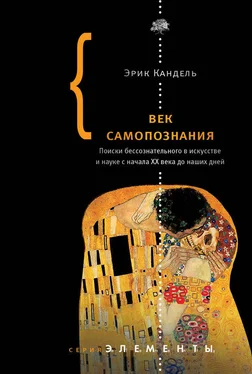


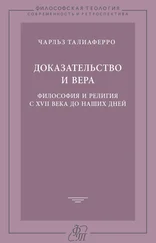


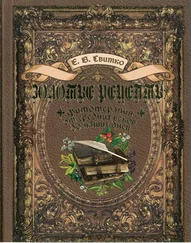
![Франк Трентманн - Эволюция потребления [Как спрос формирует предложение с XV века до наших дней]](/books/403210/frank-trentmann-evolyuciya-potrebleniya-kak-spros-fo-thumb.webp)
